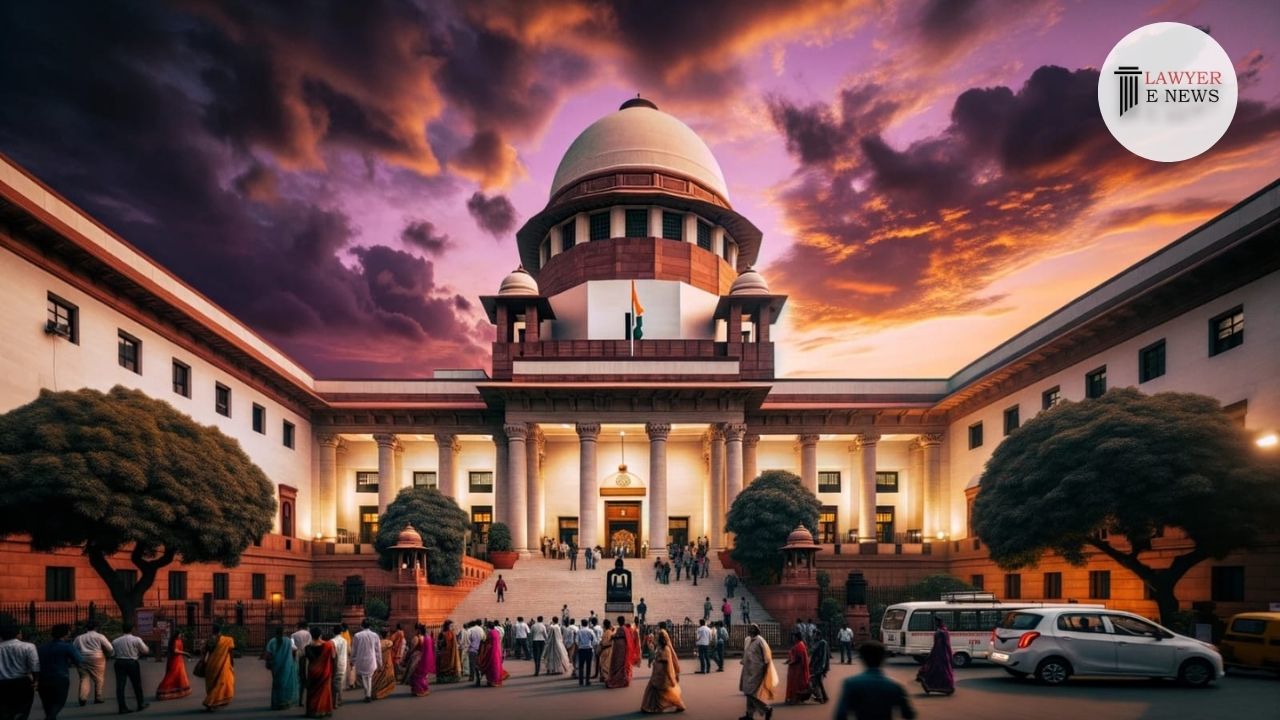-
by sayum
14 February 2026 2:22 PM



The Supreme Court has invalidated the land acquisition proceedings for establishing a Multi-Model Logistics Park under the Bharatmala Project, emphasizing the mandatory nature of Section 15 of the Right to Fair Compensation and Transparency in Land Acquisition, Rehabilitation and Resettlement Act, 2013 (Act of 2013). The bench, comprising Justices B.R. Gavai, Satish Chandra Sharma, and Sandeep Mehta, held that the objections under Section 15 should have been personally heard by the Collector and not the Sub-Divisional Officer (SDO), without proper authorization.
Court Observations and Views:
Non-Compliance with Section 15:
The Supreme Court underscored that the procedural requirements under Section 15 of the Act of 2013 were not adhered to. "The Collector is mandatorily required to personally hear the objections and forward a report to the appropriate Government," the court noted. The delegation of this function to the SDO without explicit authorization from the State Government was deemed invalid. The judgment clarified that the Collector, acting as the appropriate Government, must comply with the statutory duties outlined in the Act.
Improper Delegation of Authority:
Addressing the respondents' argument that the SDO had the authority to hear the objections, the Supreme Court remarked, "The provisions of Section 3(g) of the Act, defining 'Collector', do not authorize such delegation without a specific designation by the appropriate Government." The court highlighted that the SDO's role was limited to acting as the Land Acquisition Officer and not as the authority to hear objections under Section 15.
Legal Reasoning:
The judgment extensively discussed the statutory interpretation of Section 15, reinforcing the mandatory nature of the Collector's role in hearing objections. "The hearing of objections is a substantive right and cannot be bypassed or delegated improperly," the court emphasized. Citing previous rulings, the judgment reiterated that procedural compliance is crucial in land acquisition proceedings to ensure fairness and transparency.
Quotes from the Judgment:
Justice Sandeep Mehta stated, "The non-compliance with Section 15 vitiates the acquisition proceedings, as it deprives the objectors of their statutory rights." He further remarked, "The Collector must personally hear objections and cannot delegate this duty without proper authorization from the appropriate Government."
Conclusion: The Supreme Court's decision underscores the judiciary's commitment to upholding statutory rights and procedural fairness in land acquisition cases. By invalidating the acquisition proceedings due to improper delegation of authority, the judgment reinforces the importance of adhering to the procedural requirements under the Act of 2013. This landmark ruling is expected to impact future land acquisition cases, ensuring stricter compliance with statutory mandates.
Date of Decision:15th May 2024
Dinesh And Others Etc. vs. State Of Madhya Pradesh And Others Etc.
